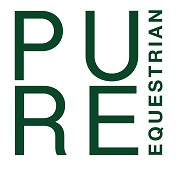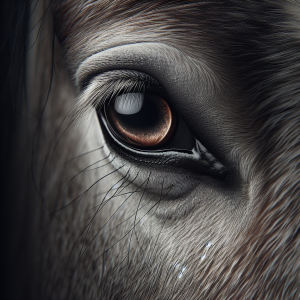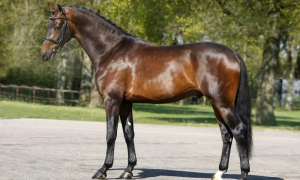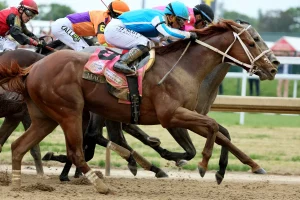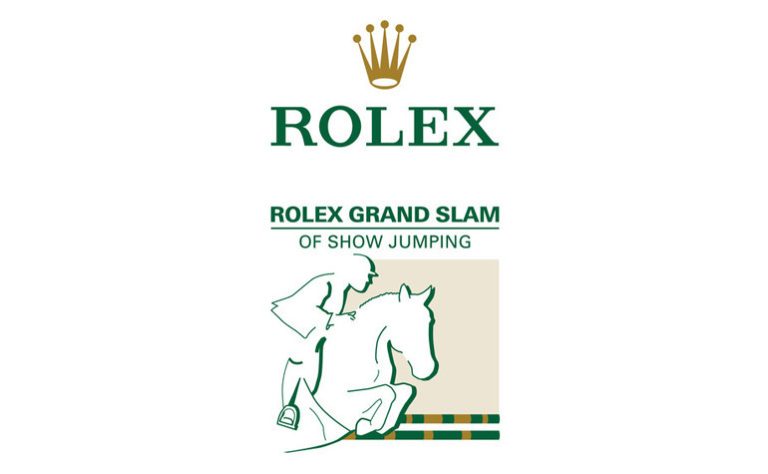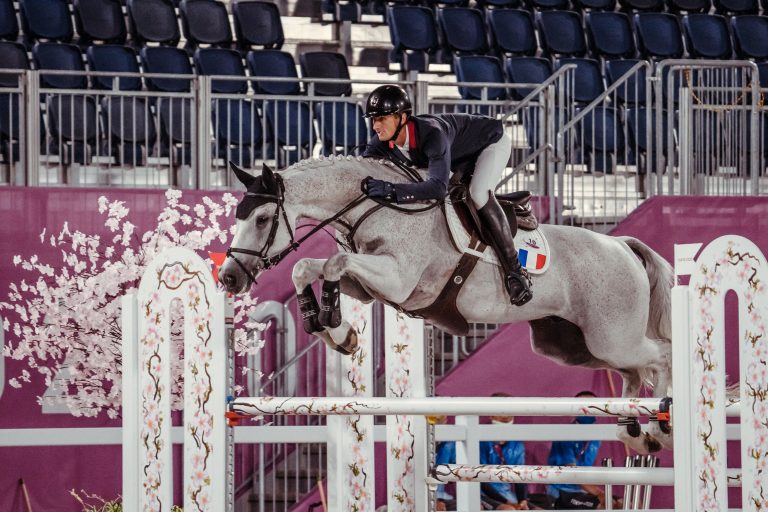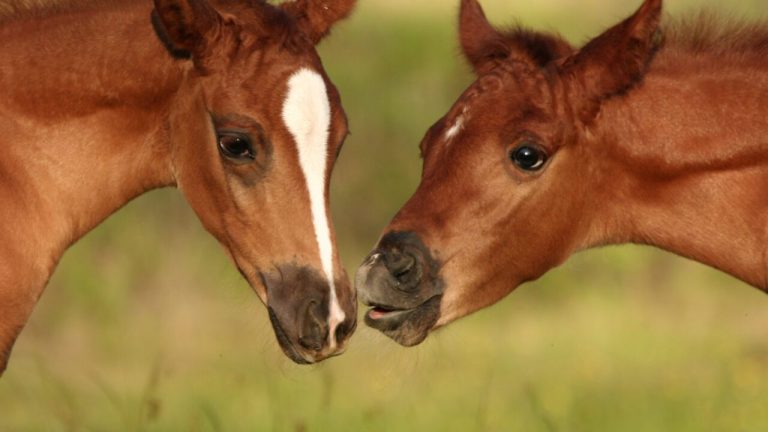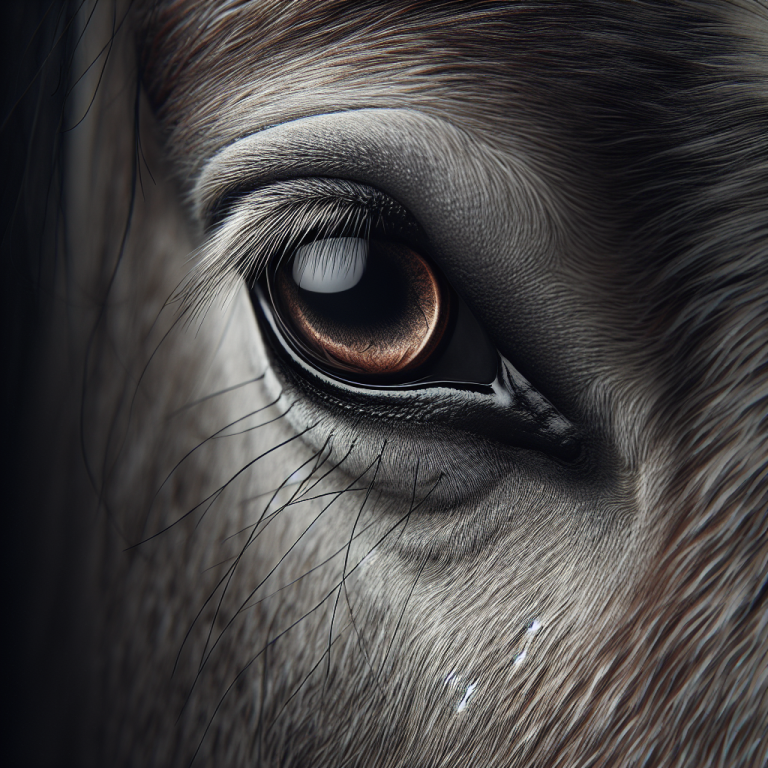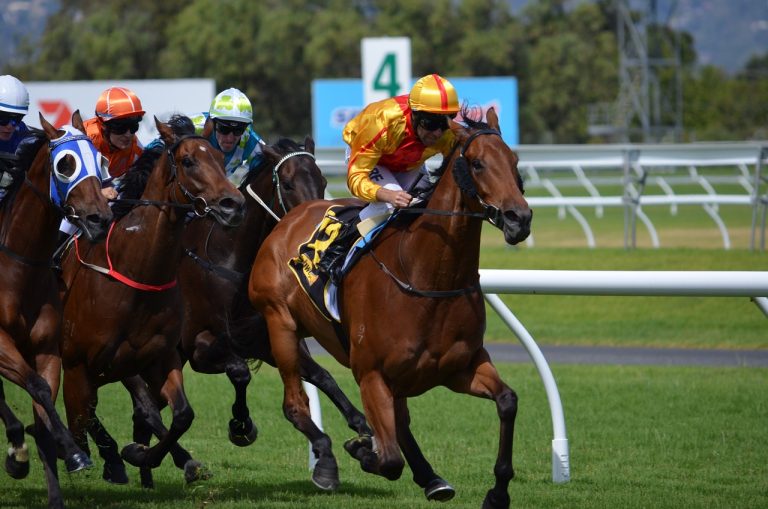Have you ever wondered how long horses live on average? It’s a question that has piqued the curiosity of many. In this article, we will explore the fascinating topic of the average lifespan of a horse. Discover the factors that influence their longevity and gain a better understanding of what contributes to a horse’s overall health and wellbeing. So saddle up and join us on this journey as we uncover the secrets of these magnificent creatures’ lifespans.
Table of Contents
ToggleFactors Affecting Lifespan
When it comes to the lifespan of a horse, several factors come into play. These factors can greatly influence how long a horse is expected to live. From breed and healthcare to diet, exercise, and environmental factors, each aspect plays a significant role in determining the lifespan of a horse. Let’s explore these factors in more detail.
Breed
One important factor that affects the lifespan of a horse is its breed. Different breeds have different average lifespans. For example, it is well known that larger breeds tend to have shorter lifespans compared to smaller ones. This is because larger horses, such as draft horses, put more strain on their bodies. On the other hand, smaller breeds, like Arabians, are generally known for their longevity. It’s essential to consider the breed when predicting a horse’s lifespan.
Healthcare
Proper healthcare is crucial for a horse’s overall well-being and can significantly impact its lifespan. Regular veterinary check-ups, vaccinations, and deworming are essential to ensure that a horse remains in good health. Early detection and treatment of any health issues can also contribute to a longer lifespan. Additionally, providing appropriate shelter to protect the horse from extreme weather conditions and regular grooming to maintain healthy skin and coat are vital aspects of healthcare.
Diet
A well-balanced diet is essential to keep a horse healthy and extend its lifespan. Horses are herbivores and require a diet that consists mainly of forage, such as hay or pasture. Providing them with fresh, high-quality forage helps promote proper digestion and prevents issues like colic or weight-related problems. Additionally, ensuring that the horse has access to clean water and providing necessary supplements, such as vitamins and minerals, can also contribute to its overall health and longevity.
Exercise
Regular exercise is another crucial factor for a horse’s lifespan. Horses are naturally active animals and need opportunities for movement to maintain their physical and mental well-being. Exercise helps strengthen their muscles, improve cardiovascular health, and maintain healthy joints. It also helps prevent obesity and associated health issues. Providing ample turnout time or regular exercise under saddle, depending on the horse’s specific needs and abilities, is essential for promoting a longer lifespan.
Environmental Factors
The environment in which a horse lives can also impact its lifespan. Horses kept in clean, well-maintained facilities with proper ventilation and adequate space to move around have a higher chance of living longer. Exposure to extreme weather conditions, such as excessive heat or cold, can be detrimental to a horse’s health and potentially shorten its lifespan. Minimising exposure to harmful environmental factors and providing a safe and stimulating living environment can contribute to a horse’s overall well-being and lifespan.
Life Stages of a Horse
Understanding the different life stages of a horse is essential in caring for them effectively. Each stage brings unique needs and challenges that horse owners should be aware of. Let’s take a closer look at the different life stages of a horse.
Foal
The foal stage refers to a young horse from birth until it is weaned, usually around four to six months of age. Foals depend on their dams for nutrition, and during this stage, they rapidly grow and develop. It is essential to provide a safe and nurturing environment for foals, ensuring they receive proper nutrition, regular veterinary care, and socialisation with other horses.
Weanling
After being weaned from their dams, foals enter the weanling stage, which typically lasts until they turn one year old. Weanlings experience significant growth and development during this period and require a diet specifically formulated to support their optimal growth. Regular veterinary care, including vaccination and deworming, continues to be crucial at this stage.
Yearling
The yearling stage begins when a horse reaches one year of age and lasts until it turns two. Yearlings experience growth spurts during this phase, and their bodies continue to develop and mature. Proper nutrition, exercise, and continued veterinary care are vital during this stage to support healthy growth and development.
Adult
Once a horse reaches its second year, it is considered an adult. The adult stage can be further divided into subcategories, such as young adults (2–5 years old) and mature adults (5+ years old). Adult horses require a well-balanced diet, regular veterinary care, and appropriate exercise to maintain their overall health and well-being. Attention to dental health, vaccination schedules, and hoof care becomes increasingly important as a horse progresses through the adult stage.
Average Lifespan of Different Horse Breeds
The average lifespan of a horse can vary depending on its breed. While it is not possible to predict the exact lifespan of an individual horse, understanding breed tendencies can provide some insight. Let’s take a closer look at the average lifespans of different horse breeds.
Thoroughbred
Thoroughbreds, known for their speed and athleticism, have an average lifespan of around 25 to 30 years. However, some Thoroughbreds can live well into their 30s with proper care. Their longevity often depends on factors such as genetics, healthcare, and lifestyle.
Arabian
Arabians, famous for their beauty and endurance, are generally long-lived horses. With proper care, Arabians can live well into their 30s or even 40s. Their strong constitution and genetic predisposition contribute to their exceptional longevity.
Quarter Horse
Quarter horses, known for their versatility and athleticism, typically have an average lifespan of 25 to 30 years. With good care, some quarter horses can surpass 30 years of age. Their lifespan is influenced by factors like genetics, healthcare, and lifestyle.
Morgan
Morgans, characterised by their strength and elegance, have an average lifespan of 25 to 30 years. Some Morgans have been known to live even longer with proper care and management. Factors such as genetics, healthcare, and diet play a significant role in their longevity.
Appaloosa
Appaloosas, with their unique coat patterns and versatility, generally have an average lifespan of 25 to 30 years. With proper care, some Appaloosas have lived well into their 30s. Factors like genetics, healthcare, and lifestyle can affect their overall lifespan.
Draft Horses
Draft horses, renowned for their strength and size, typically have a slightly shorter lifespan compared to smaller horse breeds. On average, draft horses live around 20 to 25 years. However, individual horses may vary, and factors like genetics, healthcare, and lifestyle can influence their lifespan.
Common Causes of Premature Death
While horses can live long and healthy lives, unfortunately, there are several common causes of premature death. Understanding these causes can help horse owners take proactive measures to mitigate the risks. Let’s explore some of the most frequent causes of premature death in horses.
Colic
Colic is a general term referring to abdominal pain in horses. It can have various underlying causes, such as digestive issues, intestinal obstructions, or twists. Colic is a severe condition and can be life-threatening if not promptly addressed. Identifying and addressing the early signs of colic can significantly increase the chances of a positive outcome.
Old Age
Old age itself can be a significant cause of premature death in horses. As horses age, their organs and body systems can gradually decline, making them more susceptible to various health issues. Regular veterinary care, proper nutrition, and appropriate management practices can help to support an aging horse’s overall health and well-being.
Laminitis
Laminitis is a painful condition that affects the tissues connecting the horse’s hoof to the underlying bone. It can be caused by various factors, including poor diet, obesity, or underlying health issues. Laminitis can lead to severe lameness and, if left untreated, can result in a horse’s premature death. Early intervention and proper management are crucial for preventing and managing laminitis.
Injuries
Horses are highly active animals, and injuries can occur due to accidents, falls, or even during exercise. Severe injuries, such as fractures or severe lacerations, can be life-threatening. Swift and appropriate veterinary care is essential to minimise the impact of injuries on a horse’s overall health and potentially prevent premature death.
Infections
Infections, whether bacterial, viral, or fungal, can pose a significant risk to a horse’s health and well-being. Severe or untreated infections can lead to sepsis, a life-threatening condition. Regular vaccinations, proper hygiene practices, and prompt treatment of infections can help minimise the risk of premature death due to infectious diseases.
Cancer
Just like humans, horses can develop various forms of cancer. While cancer is relatively rare in horses, it can still occur and have serious consequences for their health. Early detection and appropriate treatment options can help manage cancer and potentially extend a horse’s life.
The Oldest Recorded Horses
Throughout history, there have been several remarkable cases of horses living exceptionally long lives. These horses serve as a testament to the potential longevity of these magnificent creatures. Let’s take a look at some of the oldest recorded horses.
Old Billy
Old Billy, also known as “Billy the Old White,” holds the Guinness World Record for the oldest horse ever recorded. Born in 1760, this Irish horse lived to be an astounding 62 years old. Old Billy lived a long life as a barge horse, pulling heavy loads along the canals in England.
Sugar Puff
Sugar Puff, a Shetland pony, lived to be 56 years old. Born in 1962 and passing away in 2018, Sugar Puff became a beloved companion to many children, and her longevity made her a local legend.
Sham
Sham, a Thoroughbred racehorse, captured the hearts of racing enthusiasts during the 1970s. Despite finishing second to Secretariat in the 1973 Kentucky Derby, Sham lived an impressive life. He retired from racing at the age of three and lived to be 29 years old.
Bramble
Bramble, a Shire horse from the United Kingdom, lived an extraordinary life. Born in 1966, Bramble lived until the remarkable age of 48. She became a celebrity in her later years, often appearing on television and attracting the attention of horse lovers worldwide.
Badger
Badger, a Welsh Cob from Wales, became an icon of his breed. Born in 1949, Badger lived until the remarkable age of 51. His longevity and personable nature made him a beloved figure within his local community.
Prospect Point
Prospect Point, an American Saddlebred, lived to be 50 years old. Born in 1969, this talented show horse enjoyed a long and successful career before retiring and spending his final years in quiet contentment.
Factors That Can Extend a Horse’s Lifespan
While we cannot control all aspects of a horse’s lifespan, there are several factors that can contribute to extending their life expectancy. By prioritising these factors, horse owners can help ensure their equine companions enjoy long and healthy lives. Let’s explore these factors in more detail.
Regular Veterinary Care
Routine veterinary check-ups are crucial for maintaining a horse’s overall health and detecting any potential issues early on. Vaccinations, deworming, dental care, and general wellness exams all play important roles in preventive care. Regular consultations with an experienced equine veterinarian can help identify and address health concerns promptly, potentially extending a horse’s lifespan.
Balanced Diet
Providing a balanced and appropriate diet is essential for supporting a horse’s overall health and longevity. Horses should have access to fresh, high-quality forage, such as hay or pasture, to promote proper digestion and nutrient intake. Additionally, the appropriate supplementation of vitamins and minerals can help ensure all nutritional requirements are met. Consulting with an equine nutritionist or veterinarian can help develop a diet tailored to an individual horse’s needs.
Appropriate Exercise
Regular exercise is crucial for maintaining a horse’s physical and mental well-being. Exercise helps promote cardiovascular health, muscle development, and joint flexibility. It also helps prevent obesity and related health issues. Providing horses with ample turnout time or incorporating an appropriate exercise regimen under saddle, depending on their age, fitness level, and specific needs, can help extend their lifespan.
Good Dental Health
Proper dental care is essential for a horse’s overall health and longevity. Regular dental check-ups and floating (the process of filing sharp points) help ensure teeth alignment and proper chewing, promoting optimal nutrient absorption. Neglecting dental health can lead to issues like weight loss, digestive problems, and even colic. Regular dental examinations and care by a qualified equine dentist or veterinarian are essential for maintaining a horse’s oral health.
Factors That Can Shorten a Horse’s Lifespan
While we strive to promote the longevity of our horses, certain factors can significantly shorten their lifespan if not properly addressed. By recognising and addressing these factors, horse owners can help prevent premature death and ensure their horses live healthy, fulfiling lives.
Neglect and Abuse
Neglect and abuse are highly detrimental to a horse’s health and well-being. Horses that experience neglect or abuse may suffer from malnutrition, untreated injuries or illnesses, and severe psychological distress. Providing a safe and nurturing environment and supporting responsible horse ownership are crucial for promoting a horse’s lifespan.
Lack of Veterinary Care
Regular veterinary care is essential for addressing health issues in a timely manner and providing preventive care. Neglecting necessary veterinary care, such as vaccinations, deworming, dental care, and general wellness exams, can lead to undiagnosed or untreated health problems that may significantly impact a horse’s lifespan.
Poor Diet
Feeding a poor-quality diet can have severe consequences for a horse’s health and longevity. Diets lacking essential nutrients can lead to various health issues, including weight loss, malnutrition, and increased susceptibility to disease. Ensuring horses receive a balanced and appropriate diet is vital for their overall health and well-being.
Stressful Living Conditions
Horses thrive in environments that promote their natural behaviours and minimise stress. Stressful living conditions, such as overcrowded or poorly maintained facilities, excessive noise, lack of social interaction, or prolonged confinement, can have a negative impact on a horse’s health and mental well-being. Providing suitable living conditions that allow for natural behaviours and social interactions are essential for promoting a horse’s longevity.
Lifespan and Retirement Age of Working Horses
Working horses, such as racehorses, show horses, mounted police horses, and those used in agriculture, often have different lifespan expectations and retirement ages based on the demands of their specific disciplines. Let’s explore the lifespan and retirement age of working horses in various fields.
Racehorses
Racehorses are typically bred for speed and athleticism, but their career span is relatively short-lived. Most racehorses retire from racing by the age of 4 or 5 due to the physical demands of the sport. While the average lifespan of a racehorse can vary, it is generally around 25 to 30 years with proper care after retirement.
Show Horses
Show horses, such as those involved in disciplines like dressage, show jumping, or western pleasure, can have longer careers compared to racehorses. However, the intensity of their training and competition schedules can affect their lifespan. With proper management, show horses can live to be 25 to 30 years old or even longer.
Mounted Police Horses
Mounted police horses play a crucial role in law enforcement, crowd control, and community outreach programmes. These horses undergo extensive training and are subjected to various physical demands during their working lives. Typically, mounted police horses retire after around 15 to 20 years of service. With proper retirement plans and care, they can live well into their 20s or even up to 30 years old.
Working Horses in Agriculture
Horses used in agricultural work, such as ploughing fields or pulling waggons, live in various settings and perform different tasks. Their lifespan and retirement age can depend on factors like the intensity of their workload, diet, and general care. With proper management, working horses can live to be 25 to 30 years old or even longer.
How to Extend Your Horse’s Lifespan
As a horse owner, you play a vital role in extending your horse’s lifespan and promoting their overall health and well-being. Here are some essential tips to help extend your horse’s lifespan.
Regular Health Check-ups
Make sure to schedule regular veterinary check-ups to monitor your horse’s health and detect any potential issues early on. Vaccinations, deworming, dental care, and general wellness exams are essential components of preventive care. Taking proactive measures and following your veterinarian’s recommendations can significantly contribute to extending your horse’s lifespan.
Proper Nutrition
Provide a balanced and appropriate diet tailored to your horse’s specific needs. Ensure access to fresh, high-quality forage, such as pasture or hay, to support proper digestion and nutrient intake. Additionally, consult with an equine nutritionist or veterinarian to determine if any supplements are necessary to meet your horse’s nutritional requirements.
Regular Exercise
Regular exercise is crucial for maintaining your horse’s physical and mental well-being. Allow ample turnout time or incorporate an appropriate exercise regimen under saddle, depending on your horse’s age, fitness level, and specific needs. Exercise helps promote cardiovascular health, muscle development, and joint flexibility, contributing to a longer and healthier life.
Preventive Care
Preventive care measures, such as maintaining proper hoof care, practicing good hygiene, and regularly inspecting your horse for any signs of injury or illness, are essential to extending your horse’s lifespan. Promptly addressing any concerns and seeking veterinary care when needed can help prevent potentially severe health issues and maximise your horse’s overall health and well-being.
Conclusion
The average lifespan of a horse can vary significantly depending on several factors, including breed, healthcare, diet, exercise, and environmental conditions. Understanding these factors and incorporating good management practices can help extend a horse’s lifespan and promote their overall health and well-being. Regular veterinary care, a balanced diet, appropriate exercise, and preventive measures are key to ensuring your horse lives a long and fulfiling life. By prioritising these factors and providing a nurturing and supportive environment, you can be a positive influence in your horse’s journey towards a long and healthy life.
